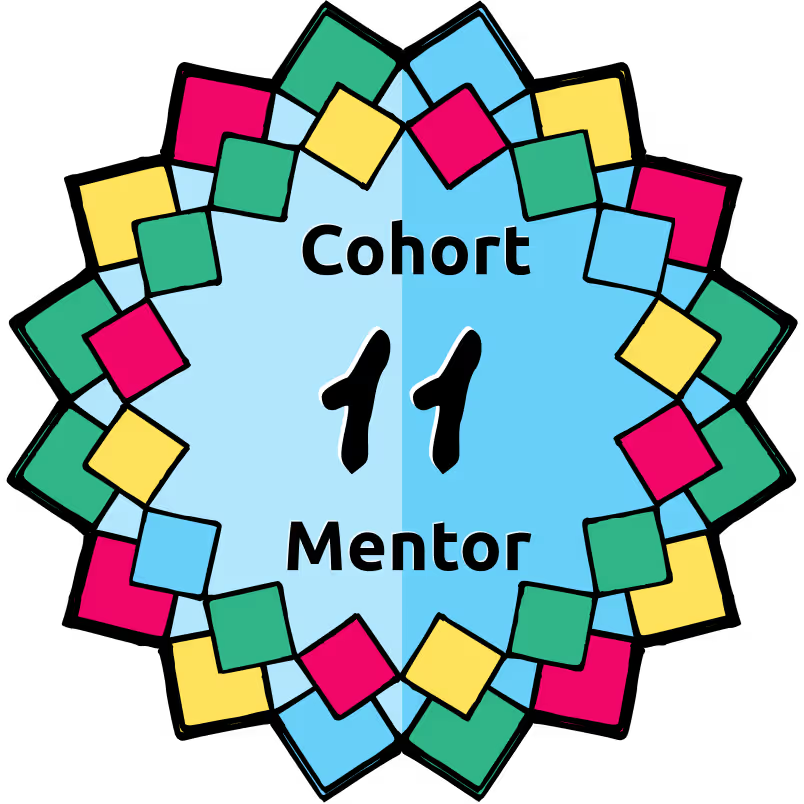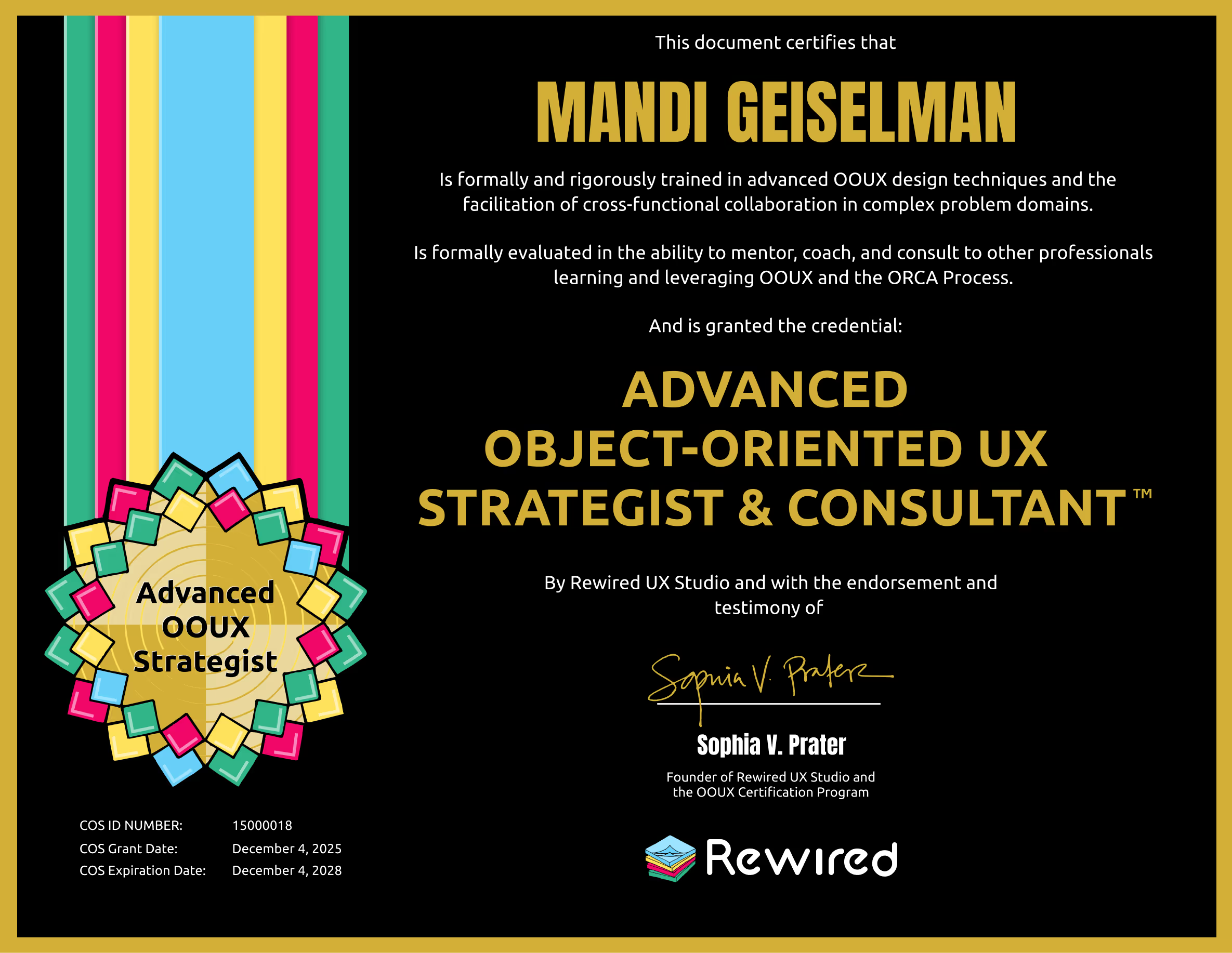Cookie Consent
By clicking “Accept”, you agree to the storing of cookies on your device to enhance site navigation, analyze site usage, and assist in our marketing efforts. View our Privacy Policy for more information.





Mandi was great explaining my questions and flexible when I was behind and tring to catch up. She was key to not get or feel disconnected from the training. And she is an expert on the topic and the thing she pointed some times took me time to sink, really smart and experienced.

Mandi's feedback was a huge game changer thought this process. Having someone to collaborate with in the Forum and in our 1-1 session really made this experience worth the investment. I was on the fence about doing the self pace version instead. Mandi if your reading this you rock! Thanks for all the timely quick feedback and digging in deeper on how your apply this methodology in your work setting. I am excited to put into actions my own OOUX practice with the designers I work with. Thanks for leading the way.

Mandi was encouraging and knowledgable. She provided detailed feedback and circled back to continue the conversation when needed. It's helpful to have someone that is actively working on digital products and willing to share their experience.

Mandi was exactly what you wanted. She was available for 1:1 meetings and supportive when I was working heads down.

In real life, there's usually too little time to do everything perfectly, even if you're good at what you do. The real question becomes where to spend our energy for the best effect. This is where Mandi's advice was invaluable. When I was getting overwhelmed, she was able to quickly identify the most important areas for me to focus on, to get the most value at each step. This actionable feedback not only helped me get through the work, but also taught me valuable lessons I can apply in my daily work.

When I was first certified in OOUX, I knew I was going to need more time getting into advanced concepts. Three years later and it's more beneficial than I thought back then. Just the pieces about OOUX and business strategies has helped level my skills up in the eyes of my leadership team. I feel more grounded and capable of finding a place for myself in an ever evolving industry and world. I feel like even if I left UX design, I would still find OOUX and the things I learned in this course invaluable.

Something I’m glad that I did do, was take the self-paced course first. I was able to really focus on the assignments during the certification course and not worry about having to understand the concepts (for the first time) at the same time. It’s what I advise everyone to do who I’ve talked to about the course.

Before I was introduced to OOUX, I honestly didn't think I wanted to practice UX design anymore. I didn't know what else I would do, but I was getting really burnt out trying to keep track of everything happening all at once and being the one person on a team that was thinking, "when we pull this string, what other things will unravel?" I was tired of all the re-work, re-prioritization, and miscommunication that is rampant in the UX field. I had small process that sort-of worked for me and the way my brain works, but nothing that I could communicate or share with my peers. I was drowning and OOUX and the ORCA process felt like a life preserver. I finally felt like I had a leg to stand on, that my concerns were not only valid but that I had a framework in which they could be addressed. I have a framework that I can point to that can help my peers not only understand my processes better, but can help improve theirs. My mentor told me recently, "It's very rare that we find something in UX that feels so close to a silver bullet," and I'd have to agree. Sometimes that does make me feel like I'm trying to sell people on a juice cleanse, but I'm starting to become comfortable with that feeling. This program helped introduce me to the niches of UX design that I didn't even know existed, and that they are FULL of people thinking like me. While this philosophy and process may feel niche now, I have no doubt that with enough time (and dedicated practitioners) UX will return to it's Object-Oriented roots and it won't be niche for too much longer.

In this talk, Mandi Geiselman will be reviewing a slice of the exploration work she did on this subject by looking at a few objects from Horizon Forbidden West (developed by Guerilla Games) through an object-oriented player experience lens.
FYI: This is an affiliate link (we earn a small kickback if you buy).


Work through the OOUX Masterclass with a cohort of other professionals. 1-on-1 coaching, personalized assignment reviews, office hours, and small-group study sessions. Finish with a valuable professional certification.
Learn more